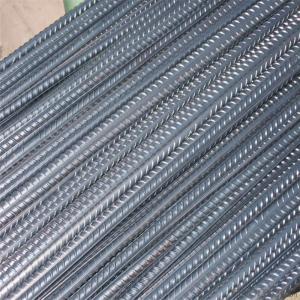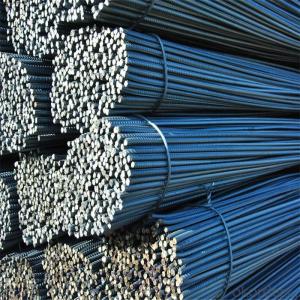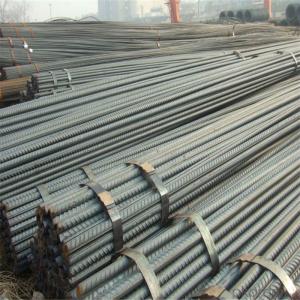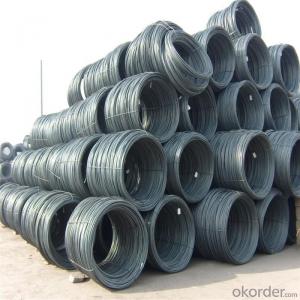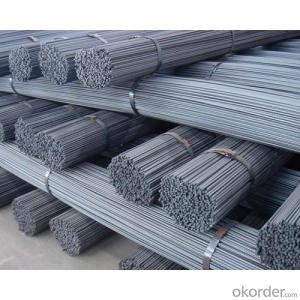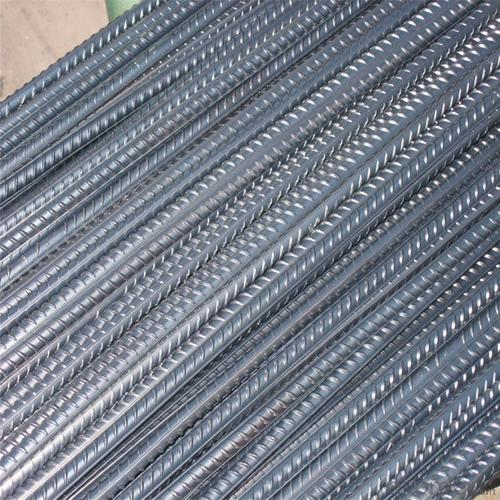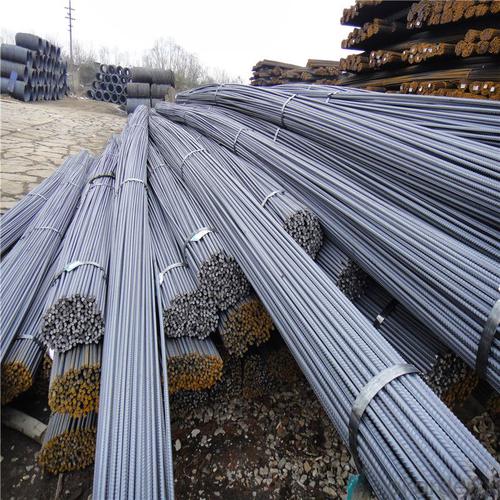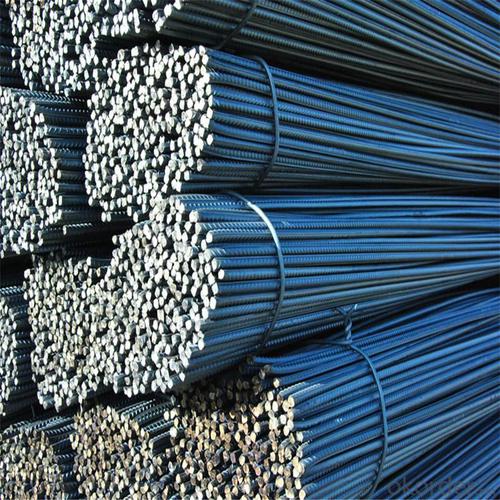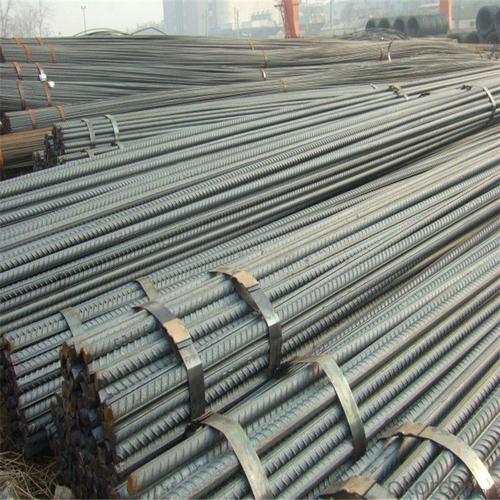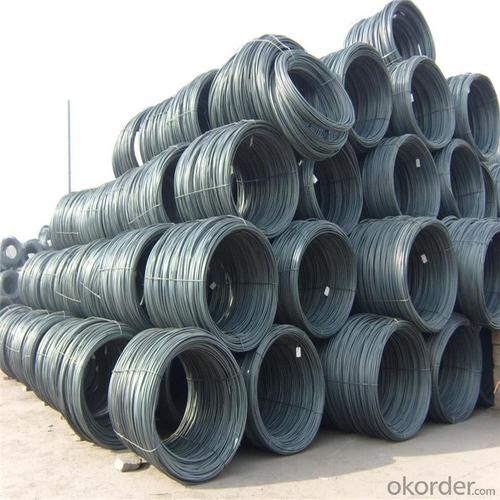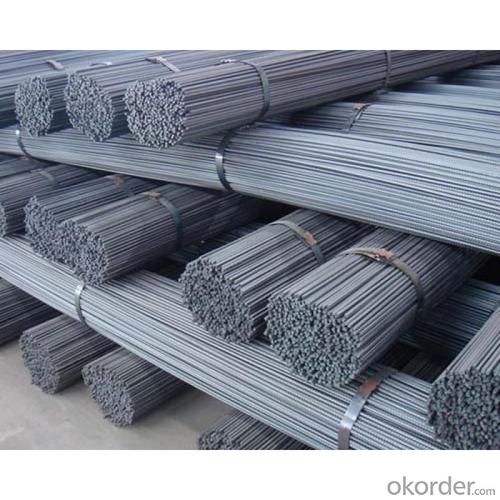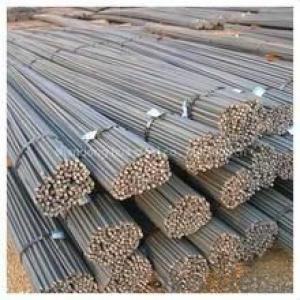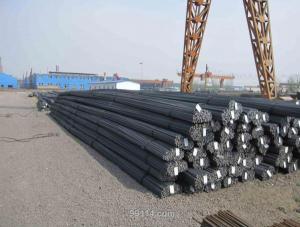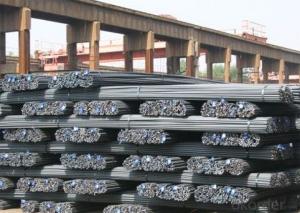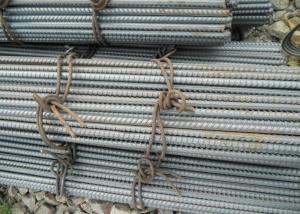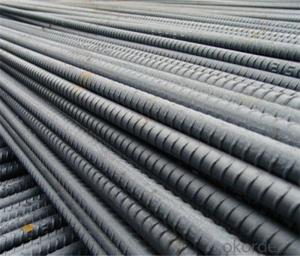Ucraine Turkish Deformed Steel Rebars
- Loading Port:
- Tianjin
- Payment Terms:
- TT OR LC
- Min Order Qty:
- 130 m.t.
- Supply Capability:
- 500000 m.t./month
OKorder Service Pledge
OKorder Financial Service
You Might Also Like
Specification
Ucraine Turkish Deformed Steel Rebars
Description of Ucraine Turkish Deformed Steel Rebars
1, Diameter: 5.5mm-10mm Ucraine Turkish Deformed Steel Rebars
10m- 40mm Ucraine Turkish Deformed Steel Rebars
2, Length: 6m, 9m, 12m or customized
3, Standard: GB, ASTM, AISI, SAE, DIN, JIS, EN
OEM technology - send detailed technical parameters for accurate quotation.
2, Produce Process: smelt iron - EAF smelt billet - ESR smelt billet -
hot rolled or forged to get the steel round bar and plate
3, Heat Treatment: annealing, normalizing, tempering, quenching
4, Surface Treatment: Black
5, Quality Assurance: We accept third party inspection for all orders.
You can ask testing organizations such as SGS, BV, etc. to test our products before shipping.
Chemical Composition of Ucraine Turkish Deformed Steel Rebars
Grade | Technical data of the original chemical composition(%) | |||||
Reinforcing steel bar HRB335 | C | Mn | Si | S | P | B |
≤0.25 | ≤1.60 | ≤0.80 | ≤0.045 | ≤0.045 | >0.0008 | |
Physics Capability | ||||||
Yield Strength(N/cm2) | Tensile Strength(N/cm2) | Elongation(%) | ||||
≥ 335 | ≥490 | ≥16 | ||||
Reinforcing steel bar HRB400 | C | Mn | Si | S | P | B |
≤0.25 | ≤0.16 | ≤0.80 | ≤0.045 | ≤0.045 | 0.04-0.12 | |
Physics Capability | ||||||
Yield Strength(N/cm2) | Tensile Strength(N/cm2) | Elongation(%) | ||||
≥ 400 | ≥ 570 | ≥ 14 | ||||
Products Show of Ucraine Turkish Deformed Steel Rebars
Company Information
CNBM International Corporation is the most important trading platform of CNBM group.
Whith its advantages, CNBM International are mainly concentrate on Cement, Glass, Iron and Steel, Ceramics industries and devotes herself for supplying high qulity series of refractories as well as technical consultancies and logistics solutions.


F A Q
1, Your advantages?
professional products inquiry, products knowledge train (for agents), smooth goods delivery, excellent customer solution proposale
2, Test & Certificate?
SGS test is available, customer inspection before shipping is welcome, third party inspection is no problem
3, Factory or Trading Company?
CNBM is a trading company but we have so many protocol factories and CNBM works as a trading department of these factories. Also CNBM is the holding company of many factories.
4, Payment Terms?
30% TT as deposit and 70% before delivery.
Irrevocable L/C at sight.
5, Trading Terms?
EXW, FOB, CIF, FFR, CNF
6, After-sale Service?
CNBM provides the services and support you need for every step of our cooperation. We're the business partner you can trust.
For any problem, please kindly contact us at any your convenient time.
We'll reply you in our first priority within 24 hours.
- Q: How is special steel used in the production of valves and fittings?
- The unique properties and characteristics of special steel play a vital role in manufacturing valves and fittings. These components are essential in industries like oil and gas, chemical, petrochemical, and power generation. Also known as alloy steel, special steel offers superior strength, corrosion resistance, and durability compared to regular carbon steel. These qualities make it an ideal material for creating valves and fittings that can withstand high pressure, extreme temperatures, and corrosive environments. In valve production, special steel is commonly used for critical parts like the valve body, bonnet, stem, and more. The valve body houses internal components and seals the flow of fluids or gases. Special steel's high tensile strength and resistance to deformation ensure that the valve body can handle pressure and maintain a tight seal, preventing leaks. Similarly, special steel is used in manufacturing fittings, which connect pipes or other equipment in fluid or gas systems. Fittings made from special steel can endure high pressures, temperature changes, and corrosive media, guaranteeing a reliable and leak-free connection. Special steel alloys, like stainless steel or duplex stainless steel, are often chosen for their excellent corrosion resistance. They can withstand harsh environments, including exposure to chemicals, saltwater, and acidic or alkaline substances. This corrosion resistance is critical in preventing valve and fitting failure, maintaining system integrity, and avoiding costly downtime or accidents. Furthermore, special steel can be customized to meet specific requirements, such as resistance to high or low temperatures or exceptional wear resistance. This allows manufacturers to tailor valves and fittings based on the particular application and operating conditions, ensuring optimal performance and longevity. Overall, the exceptional strength, corrosion resistance, and durability of special steel make it a widely used material in valve and fitting production. These properties enable valves and fittings to perform reliably in demanding environments, ensuring the safe and efficient operation of various industries.
- Q: What are the applications of special steel?
- Special steel has a wide range of applications across various industries such as automotive, aerospace, construction, and manufacturing. It is used in the production of high-performance components and structures that require exceptional strength, durability, and resistance to heat, corrosion, and wear. Special steel finds applications in engine parts, aircraft components, cutting tools, molds, and high-rise buildings, among others.
- Q: What are the common applications of special steel in the manufacturing industry?
- Special steel is commonly used in the manufacturing industry for a variety of applications including the production of tools, machinery parts, automotive components, construction materials, and aerospace equipment. Its high strength, durability, corrosion resistance, and heat resistance make it ideal for demanding environments and critical applications where regular steel may not suffice.
- Q: Can special steel be used in the manufacturing of cutting-edge technology products?
- Yes, special steel can definitely be used in the manufacturing of cutting-edge technology products. Special steel is known for its high strength, durability, and resistance to corrosion, making it an ideal material for various applications in the technology industry. For example, in the production of smartphones, special steel can be used for the casing, providing excellent protection against impact and scratches while maintaining a sleek and modern design. Additionally, special steel can be utilized in the manufacturing of precision components for advanced machinery, such as robotics or medical devices, where high strength and reliability are crucial. Overall, special steel offers numerous advantages that make it a suitable choice for the production of cutting-edge technology products.
- Q: How does special steel ensure dimensional stability?
- Special steel ensures dimensional stability through various mechanisms. Firstly, special steel is known for its high strength and toughness, which allows it to withstand external forces and prevent deformation. This is particularly important in applications where dimensional accuracy is crucial, such as in precision machinery or tooling. Additionally, special steel undergoes specific heat treatment processes to enhance its dimensional stability. For instance, quenching and tempering treatments are commonly applied to increase the steel's hardness and resistance to wear, while minimizing the risk of warping or distortion. These treatments also help to maintain the steel's shape and size over time, even under fluctuating temperature conditions. Moreover, special steel often contains alloying elements such as chromium, nickel, or molybdenum, which contribute to its corrosion resistance. By preventing oxidation and rusting, these alloying elements help to preserve the steel's dimensional stability by preventing any deterioration or loss of material due to corrosion. Furthermore, the manufacturing process of special steel involves strict quality control measures to ensure consistent dimensional accuracy. This includes precise control of the composition, refining techniques, and casting or forging processes. By maintaining tight tolerances during production, special steel can achieve the desired dimensional stability required for specific applications. In summary, special steel ensures dimensional stability through its high strength, heat treatment processes, alloying elements for corrosion resistance, and strict quality control during manufacturing. These factors collectively contribute to maintaining the steel's shape, size, and accuracy over time.
- Q: How does special steel contribute to reducing product failures in high-stress applications?
- Special steel contributes to reducing product failures in high-stress applications by providing enhanced mechanical properties and improved resistance to wear, corrosion, and fatigue. Its superior strength, toughness, and durability enable it to withstand extreme conditions and loads, ensuring the longevity and reliability of the products. Additionally, special steel allows for precise engineering and manufacturing, resulting in components that can withstand high stress without deformation or failure.
- Q: What are the main characteristics of creep-resistant steel?
- Creep-resistant steel is a type of steel that exhibits high resistance to creep, which is the deformation that occurs under prolonged exposure to high temperatures and stress. The main characteristics of creep-resistant steel include: 1. High temperature resistance: Creep-resistant steel is capable of withstanding extremely high temperatures without significant deformation. This is crucial in applications where the material is exposed to elevated temperatures for an extended period of time, such as in power plants, boilers, and gas turbines. 2. Strength and toughness: Creep-resistant steel has excellent mechanical properties, including high tensile strength and toughness. This allows the material to withstand the stress and pressure that it is subjected to, even at high temperatures. 3. Resistance to corrosion and oxidation: Creep-resistant steel is often alloyed with elements such as chromium, molybdenum, and nickel, which enhance its resistance to corrosion and oxidation. This makes it suitable for use in aggressive environments where exposure to moisture, chemicals, and gases is common. 4. Dimensional stability: Creep-resistant steel exhibits minimal dimensional changes even under prolonged exposure to high temperatures and stress. This means that the material retains its shape and size, ensuring the integrity of the structure or component it is used in. 5. Longevity and durability: The combination of high temperature resistance, strength, and corrosion resistance makes creep-resistant steel highly durable and long-lasting. This reduces the need for frequent maintenance and replacement, improving the overall efficiency and cost-effectiveness of applications that rely on this material. Overall, creep-resistant steel is specifically designed to withstand the challenging conditions of high temperatures and stress, making it a preferred choice in industries where reliability and safety are paramount.
- Q: Is special steel recyclable?
- Yes, special steel is recyclable.
- Q: How does special steel perform in terms of magnetic permeability?
- Special steel has a relatively low magnetic permeability, making it less prone to magnetization and allowing it to resist the effects of external magnetic fields.
- Q: What are the different additive manufacturing grades of special steel?
- There are several different additive manufacturing grades of special steel, including maraging steel, tool steel, stainless steel, and high-speed steel. These grades are specifically designed for additive manufacturing processes, offering enhanced properties such as high strength, corrosion resistance, and wear resistance.
Send your message to us
Ucraine Turkish Deformed Steel Rebars
- Loading Port:
- Tianjin
- Payment Terms:
- TT OR LC
- Min Order Qty:
- 130 m.t.
- Supply Capability:
- 500000 m.t./month
OKorder Service Pledge
OKorder Financial Service
Similar products
Hot products
Hot Searches
Related keywords
